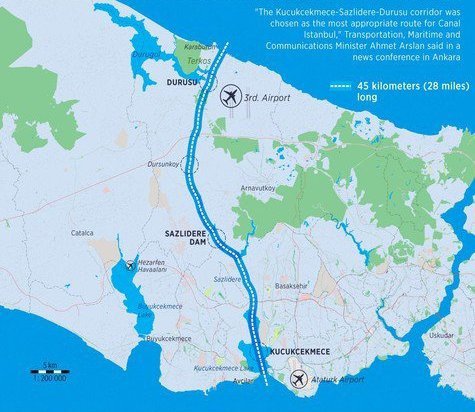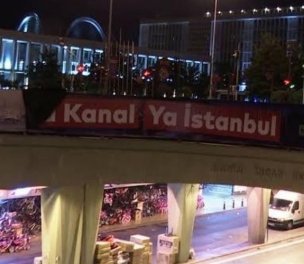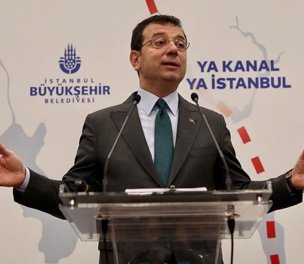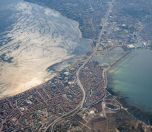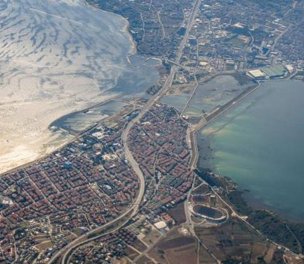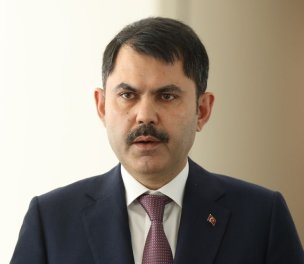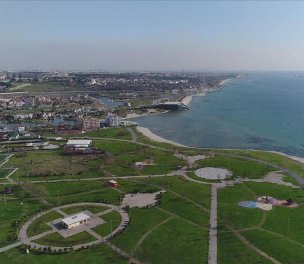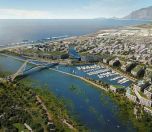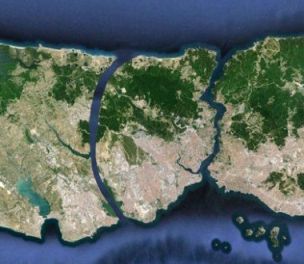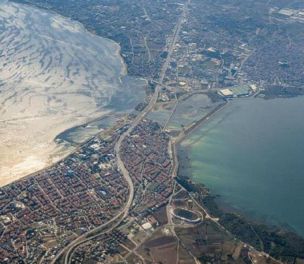* Photo: Anadolu Agency (AA) - Archive
Click to read the article in Turkish
Peoples' Democratic Party (HDP) Mersin MP Rıdvan Turan has submitted a Parliamentary question to the Speaker's Office, raising concerns over the lands that will be disqualified as forest lands or agricultural fields if the Canal İstanbul Project is carried out as planned.
In his Parliamentary question, the MP has underlined that if the project is completed, it will have an adverse effect on the dune areas, protection forests, rivers, pasturelands and agricultural lands in the northern parts of İstanbul as well as the climate of the whole city.
Turan has further noted that Canal İstanbul project will destroy water sources and inflict an irreparable and unrecoverable damage on the ecosystem of the city, which is home to hundreds of plant and animal species.
According to the figures shared by the MP, 78.83 percent of the lands within the influence area of the project are agricultural estates with different qualities, which accounts for 101 million 973 thousand 360 square meters.
'Project conflicts with the law'
Turan has also referred to the allegations that while Canal İstanbul is planned to be completed in seven years, the excavation works for the project will take four years and the total amount of soil expected to be excavated for the project is 1 billion 155 million 668 thousand cubic metres.
Within this context, he has said: "An agricultural field of 5 million 264 thousand 297 square metres defined and protected as 'absolute agricultural land' as per the Law no. 403 on Protection of the Soil and Use of Land falls within the influence area of the project. Therefore, quality agricultural lands providing food for İstanbul will disappear with the project.
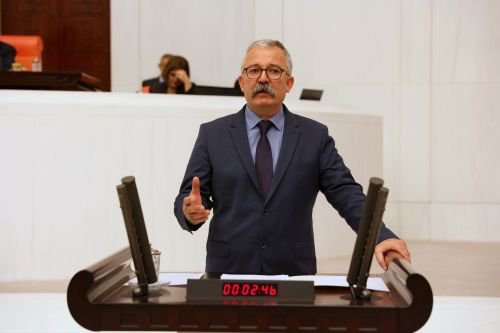
* Rıdvan Turan
"The objective of the law is specified as 'determining the procedures and merits that will ensure the protection and improvement of the soil by preventing it from losing its qualities in natural or artificial ways and the use of lands in a planned manner compatible with the principle of environment-oriented sustainable development.' But the project conflicts with the law."
What precautions have been taken?
Within this context, Turan has asked the following questions:
"How much agricultural land will be affected by Canal İstanbul Project in total and how much land will lose their quality of being an agricultural land or a forest land? Was the Law on Protection of Soil and Use of Land implemented in preparing the Canal İstanbul Project?
"Has a soil protection project been prepared? Where, how and for what purpose will the fertile soil to be excavated for the project be used?
"What precautions have been taken by the Ministry in the face of scientific reports documenting that dune areas, protection forests, rivers, pasturelands, agricultural fields, climate, ecology of the city will be adversely affected?"
Canal İstanbul project
PPresident and ruling Justice and Development Party (AKP) Chair Recep Tayyip Erdoğan made a statement in 2011, when he was still the Prime Minister. In his speech, he mentioned "a new İstanbul" objective. Presented as a "crazy project", the plan referred to 'Canal İstanbul' for the first time. What is in the 'crazy project'?The basic information as to the project was shared with the public at a press conference in Haliç Congress Center in 2011. The plan foresaw an artificial sea-level waterway that would connect the Black Sea to the Sea of Marmara. The most important aspect of the project was the integration of transportation. The construction of 3rd Bosphorus bridge foreseen by the project has been completed. In May 2016, 32 articles of 20 laws were amended. An additional article added to the Pasture Law has paved the way for the region's zoning for construction. With another amendment introduced to the law, it has been understood that the access roads to the Canal İstanbul will be toll roads. Ahmet Arslan, the then Minister of Transportation, Maritime Affairs and Communications, announced the route of the project in 2018. He said that the canal would form an artificial waterway from the Black Sea to Marmara Sea, covering 45 kilometers from Küçükçekmece Lake through Küçükçekmece-Sazlıdere-Durusu corridor. The process of Environmental Impact AssessmentThe Board of Inspection and Survey of the Ministry of Environment and Urbanization approved the Environmental Impact Assessment (EIA) Report of the Canal İstanbul project on December 23, 2019. Accordingly, the report was presented to the public at the Ministry of Environment and Urbanization and İstanbul Provincial Directorate of Environment and Urbanization for 10 days. The citizens submitted petitions of objection against the project within this period. On January 17, 2020, Minister of Environment and Urbanization Murat Kurum announced that they approved the EIA report of Canal İstanbul. |
(TP/SD)




.jpg)
